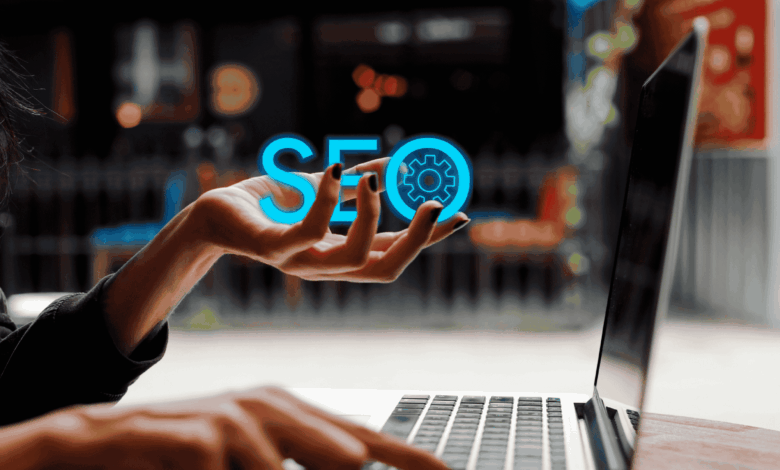
While artificial intelligence is revolutionizing industries at breakneck speed, it’s also quietly altering one of the most elusive—and most coveted—things a business or person can possess: reputation.
Now, executive hiring choices and consumer purchasing decisions are influenced by what AI-powered algorithms reveal online. That is to say that the future of trust is not only being written by PR professionals—it’s being curated, ranked, and frequently judged by machines.
No matter whether you’re a brand, an influencer, or a new business looking to court investors, understanding how AI influences your online reputation is mission-critical. Perception is power—and AI now holds the key.
AI-Powered Discovery: The New Front Line of Reputation
Every time individuals search your company, name, or brand, whatever they find is not by chance—it’s because of machine learning algorithms making sense out of searching behavior, interaction patterns, authority scores, and millions of other signals. Especially, Google itself processes more than 8.5 billion search queries each day, and YouTube—perhaps the second channel for brand check—is the second-largest search property on the planet.
The problem? These AI platforms boost content based on popularity and engagement, not context or equity. That is, a handful of bad stories can drown your online presence, especially if they’re emotionally resonant, viral, or news-worthy.
Worse yet, most organizations still stick to old PR playbooks even as they underestimate how fast algorithmic bias can fuel perception, especially in a crisis. If you’re not actively working on your search presence with AI-awareness, you’re already behind.
The Rise of AI-Driven Reputation Risk
AI doesn’t only affect what people see—but how they feel about it as well. Machine learning is increasingly integrated into sentiment analysis, emotion detection, social listening, and trend prediction. These technologies are applied everywhere: from marketing and HR to investor relations and corporate risk management.
Here are a few scenarios:
- A job applicant is disqualified for a position due to an AI-driven screening process that identified a two-year-old negative news item in their search results.
- A customer chooses a competitor over your business because a review site algorithm placed some negative ratings ahead of your positive ones.
- A CEO comment is taken out of context, goes viral, and shared on TikTok, Reddit, and Google Discover—fueling a negative loop that algorithms only amplify.
The impact is no longer anecdotal—AI is now a reputational risk multiplier.
How AI Is Disrupting Reputation Management
At our company, we’re witnessing this disruption on the ground level through all the sectors that we serve. Following are three of the most significant AI-fueled disruptions which we feel should be emphasized by every organization and public figure:
1. Algorithmic Echo Chambers
AI algorithms reward what is clicked. That is, if a problematic article or comment is popular—perhaps only for a moment—it’s likely to be around longer than it ought to be. This has an ”echo chamber effect“, with algorithms repeatedly bringing up the same content, solidifying stale or damaging narratives.
2. The Rise of Deepfakes and Synthetic Media
Generative AI has made it easier than ever to create realistic fake content—from audio impersonations to deepfake videos. We’ve seen clients come under attack from coordinated campaigns using AI-generated screenshots or fabricated statements. The reputational damage can be swift and devastating, especially in politically or financially sensitive sectors.
3. Mass Review Manipulation
Cybercriminals are now leveraging generative AI to spam review sites with phony negative reviews. They’re not poorly constructed spam messages—they’re realistic, in-depth, and emotionally complex. Amazon alone blocked over 200 million fake reviews in 2022.
Using AI for Reputation Defense and Reinforcement
Fortunately, AI is not evil—it’s the answer. The most forward-thinking organizations are using AI-powered tools and systems for reputation tracking, defense, and recovery of digital credibility.
1. Real-Time Reputation Monitoring
Sentiment analysis, natural language processing (NLP), and search monitoring tools now allow brands to detect narrative shifts or brand mentions in real time. We’ve helped clients intercept potential crises early by identifying small social ripples before they become public relations tsunamis.
2. SEO-Driven Suppression and Content Optimization
When bad or stale content goes viral, the optimal response is often to dilute and displace. With AI-driven SEO, businesses can create optimized, high-authority content that pushes down negative results in the long term.
3. AI-Powered Brand Storytelling
AI tools like GPT-4, Claude, and Jasper are being leveraged by PR and marketing teams to create narrative content at speed that’s brand-on, topical, and visibility optimized.
Best Practices for Navigating the AI Reputation Era
To thrive in an AI-governed world, organizations must rethink how they build and maintain trust. Start here:
Regularly Scan Your Digital Footprint
Utilize AI-based technology to analyze what others see when they search for your name, business, or leadership group. Check for outdated or unfavorable content that needs correction.
Create a Digital Trust Benchmark
Understand what stories already exist about your executives or brand and create a proactive plan to build on the positives through content, media, and engagement.
Leverage Earned Media and High-Authority Sources
Google prefers trusted sources. Invest in editorial publication relationships, thought leadership opportunities, and strategic content creation that aligns with your brand values.
Deepfakes and AI-driven disinformation will only become more common
Develop internal procedures for detection, legal recourse, and rapid response.
Educate leadership teams on the “Streisand Effect”
At times, silence is the best policy. Denying or reacting to public negative posts on every single occasion can increase visibility. Instead, invest in long-term narrative control through consistent, value-based messaging.
Conclusion: Reputations Are Now Machine-Managed
We’re entering a new chapter where reputation is increasingly shaped by AI algorithms before humans even form opinions. That reality creates both unprecedented risk—and opportunity.
Those companies and individuals that succeed in this new world will be those that take reputation seriously as a communications concern, but more importantly, as a strategic imperative. They’ll realize that AI doesn’t just impact marketing or SEO—it has a direct impact on trust, visibility, and long-term sustainability.
By adopting the correct tools, frameworks, and visionary mindset, we can thrive in this AI-driven world with confidence—and contribute to how the world sees us, algorithm by algorithm.




